


Welcome


As
an
artist,
I
see
myself
as
being
in
the
business
of
culture,
which
I
define
as
the
ongoing
process
of
growth
and
development,
not
simply
a
pursuit
for
profit.
For
me,
art
is
more
than
aesthetics;
it’s
about
using
the
power
of
impression,
a
divine
gift,
to
inspire
and
uplift
others.
God
has
blessed
many
of
us
with
the
ability
to
create
beautiful
expressions
through
music,
painting,
dance,
and
other
art
forms.
These
gifts
will
contribute
to
our
cultural
progress
by
shaping
ethical
values
and
fostering
understanding.
I
share
my
understanding
of
culture
and
religion
in
my
art,
articles,
videos,
and
my
new
book,
Climbing
The
Stairway
to
Culture,
Righteousness,
The
Solution to the Culture War.
….
Read more












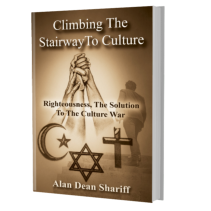
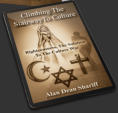
In
Climbing
the
Stairway
to
Culture:
Righteousness,
The
Solution
to
the
Culture
War,
Alan
Dean
Shariff
delivers
a
thought-provoking
and
timely
exploration
of
the
modern
culture
war
that
threatens
to
fragment
society.
This
book
calls
for
individuals
and
communities
to
rediscover
the
foundational
principles
of
unity,
righteousness,
and submission to God’s will.
Shariff
argues
that
today's
world's
divisive
labels
and
sectarian
ideologies
have
obscured
the
true
path
to
spiritual
and
cultural
growth.
Drawing
on
the
teachings
of
the
Quran
and
the
timeless
example
of
Abraham,
the
father
of
faith,
this
book
presents
a
compelling
solution:
a
return
to
the
essence
of
faith,
submission
to
God
without
divisions
or
religious
exclusivity.
Although
Shariff
draws
heavily
from
the
teachings
of
the
Quran,
he
emphasizes
that
recognizing
the
truth
within
its
guidance
does
not
mean
we
are
meant
to
identify
as
Muslims
or
belong
to
any
specific
religious
group.
He
highlights
that
the
Quran
explicitly
forbids
believers
from
aligning
with
divisions
or
sects,
advocating
instead
for
unity
through submission to God alone.
.….
.
Read more






I who have nothing
Inseparable
It’s hard to say goodbye
Just Once
Lean on me
Let’s stay together
Love is a hurting thing
Midnight-hour








Easy
Getting Ready
Going out of my head
Hero
I can’t help falling in love with you
I feel good
I heard it through the grapevine







Alan Dean, The Soul Singer
Hear Beautiful Enchanting Songs
of Love and Memories
Home Page
The Museum: A Cultural Renaissance for East Africa
Inspired
by
Rwanda’s
remarkable
recovery
after
the
1994
genocide,
where
800,000
people
were
tragically
murdered
due
to
tribal
divisions,
I
felt
called
to
visit
East
Africa.
Today,
Rwanda’s
capital,
Kigali,
stands
as
one
of
the
cleanest
cities
in
the
world,
setting
a
model
for
the
entire
continent.
Additionally,
several
East
African
nations,
including
Rwanda,
have
united
under
the
East
African
Community
and
are
working
towards
forming
a
single
nation,
the
East
African
Federation.
As
an
African
American
artist
devoted
to
the
growth
and
development
of
culture,
I
find
this
unity
inspiring,
especially
in
a
world
where
many
societies,
including
the
United
States,
appear
to
collapse
into
moral
and
social
chaos.
Wanting
to
contribute
to
this
historic
East
African
movement,
I
have
envisioned
a
Cultural
and
Slave
History
Museum
based
on
the
principles
in
my
book,
Climbing
the
Stairway
to
Culture.
This
museum
would
foster
unity,
growth,
and
understanding
across
the
region,
honoring
figures
like
Paul
Robeson,
who
I
believe
would
not
have
missed an opportunity to support such a powerful initiative.
Read more
My Favorite People of Interest
Thomas Sowell, http://www.tsowell.com/
Victor Davis Hanson https://victorhanson.com/
Jordan Peterson https://www.jordanbpeterson.com/
Tulsi Gabbard, https://www.tulsigabbard.com/podcast/
President Paul Kagame, https://www.paulkagame.com/





Alan
Dean
Shariff
invites
Patreon
supporters
to
join
him
on
an
inspiring
journey
as
he
documents
the
creation
of
a
unique
collection
of
40
paintings,
capturing
the
beauty
of
East
Africa
for
a
planned
culture
and
history
museum.
Through
his
YouTube
channel,
Alan
will
share
videos
detailing
this
project
as
well
as
his
travels across Kenya, Tanzania, Uganda, and Rwanda.
As
a
Patreon
member,
you’ll
enjoy
exclusive
behind-the-scenes
content,
sneak
peeks
of
the
artwork,
and
more.
Plus,
supporters
will
receive
a
one-time
20%
discount
on
any
of
Shariff’s
art
prints,
framed
or
unframed,
available
at
www.alanshariff.com.
Upon
joining,
a
discount
code
will
be
emailed
to
you,
which you can apply at checkout.
By
becoming
a
supporter,
you’ll
play
a
vital
role
in
making
this
museum
a
reality,
a
cultural
landmark
that
will
preserve
East
Africa’s
rich
heritage
for
generations to come.
All Rights Reserved 2023 . Alan Dean Shariff
Subscribe to our mailing list
Hardcover $23.99
Paperback $13.99
eBook $3.99



Welcome














“Is home defined by where we come from and the people
who shaped us? Or is it found in where we are going and
the souls who will accompany us in paradise?”
As
an
artist,
I
see
myself
as
being
in
the
business
of
culture,
which
I
define
as
the
ongoing
process
of
growth
and
development,
not
simply
a
pursuit
for
profit.
For
me,
art
is
more
than
aesthetics;
it’s
about
using
the
power
of
impression,
a
divine
gift,
to
inspire
and
uplift
others.
God
has
blessed
many
of
us
with
the
ability
to
create
beautiful
expressions
through
music,
painting,
dance,
and
other
art
forms.
These
gifts
will
contribute to our cultural progress by shaping ethical values and fostering understanding.
I
also
see
culture
as
something
God
designed
to
mold
human
nature,
just
as
wet
clay
is
shaped
into
form.
From
the
beginning
of
creation,
God
endowed
the
world
with
countless
powers
of
impression
to
advance
human
development,
helping
us
grow
into
beings
of
higher
awareness, understanding, and righteousness. My role as an artist is to use the gifts God has given me to serve this purpose.
Therefore,
I
dedicate
my
work
to
promoting
ethical
awareness
and
peace
among
all
good
people,
regardless
of
race,
religion,
or
nationality.
I
believe
that
art
can
uniquely
transcend
these
divisions
and
reach
the
core
of
our
shared
humanity.
Whether
through
my
paintings,
articles,
videos,
or
my
new
book,
Climbing
The
Stairway
to
Culture,
my
goal
is
to
share
a
vision
of
unity
rooted
in
ethical
living
and
spiritual
awareness.
Through
this
work,
I
hope
to
contribute
to
the
solution
of
the
culture
war
by
guiding
others
toward
righteousness
and
helping
people recognize the common ground between us all.
Alan
Dean
Shariff
is
an
artist
renowned
for
his
Black
art
prints
and
reproductions,
which
focus
on
African,
African
American,
and
Caribbean
cultural
themes.
"As
an
African
American,
I
feel
a
deep
connection
to
the
stories
and
experiences
of
Black
people,
which
is
why
I'm
most
comfortable
presenting
my
perspective
on
what
I
like
to
call
'Afro-Americana.'
It’s
a
term
that
reflects
the
rich
blend
of
African
heritage
and
the
lived
experiences of African Americans," says Alan Dean.
"I
greatly
respect
artists
who
explore
abstract
styles
but
feel
more
drawn
to
realism.
I
believe
in
presenting
life
as
it
is,
without
distortion.
For
me,
art
is
not
only
about
aesthetics
but
also
about
conveying
a
message.
I
want
my work to speak to people, to reflect the truth of their experiences, and to inspire thought and reflection."
Alan
Dean
has
been
creating
art
since
the
mid-1970s
despite
being
relatively
unknown
to
the
broader
public.
One
of
the
proudest
moments
of
his
career
came
early
on
when
he
had
the
honor
of
presenting
a
drawing
of
Muhammad
Ali
to
the
legendary
boxer.
"Muhammad
Ali
hung
the
drawing
at
his
training
camp
in
Deer
Lake,
Pennsylvania,
where
it
stayed
until
the
camp
closed.
It
was
a
profound
experience
to
have
my
work
recognized
by
someone
I
admired.
I
had
the
opportunity
to
visit
the
camp
several
times
and
talk
privately
with
Ali
about
my
art.
His
encouragement
and
respect
for
my
work
gave
me
a
sense
of
validation
and
purpose
early
in
my
career."
I
am
originally
from
Baltimore,
Maryland,
but
my
artistic
journey
has
taken
me
far
beyond.
Over
the
years,
I
have
lived
and
traveled
in
several
states
across
the
United
States,
each
place
offering
its
own
unique
inspiration.
Eventually,
I
moved
to
the
Caribbean
and
spent
over
a
decade
living
on
various
islands.
My
time
in
the
Caribbean
was
transformative,
both
artistically
and
personally.
The
vibrant
culture,
deep-rooted
history,
and
natural
beauty
of
the
islands
infused
my
work
with
a
new
level
of
richness
and
perspective.
Many
of
the
drawings
on
my
website
were
created during this period, inspired by the people and landscapes surrounding me.
While
in
the
Caribbean,
I
also
explored
my
passion
for
music.
I
performed
as
"The
Soul
Singer,"
entertaining
tourists
and
locals
alike
with
soulful
renditions
reflecting
my
love
for
music
and
storytelling.
The
connection
between
music
and
visual
art
became
even
more
apparent
during
this
time,
as
both
forms
allowed
me
to
communicate
cultural
stories
and emotions in powerful ways.
After
leaving
the
Caribbean,
I
spent
a
year
in
Southeast
Asia,
traveling
through
the
Philippines,
Cambodia,
and
Vietnam.
The
rich
traditions
and
deep
spirituality
I
encountered
in
these
countries
left
a
lasting
impression
on
me,
further
shaping
my
worldview
and
artistic
vision.
I
found
myself
drawn
to
the
different
ways
people
express
their
cultural identities, and this diversity of expression continues to influence my work today.
For
the
past
two
years,
I
have
been
living
and
traveling
across
East
Africa,
specifically
Kenya,
Tanzania,
Uganda,
and
Rwanda.
This
region
has
been
a
source
of
profound
inspiration.
The
history,
resilience,
and
cultural
depth
of
East
Africa
resonate
deeply
with
my
artistic
mission
to
present
life
without
distortion
while
carrying
a
message
of
unity
and
understanding.
Each
region,
from
the
Caribbean
to
Southeast
Asia
and
East
Africa,
has
contributed
to
my
ongoing
journey of growth and self-discovery, which I seek to express through my art, music, and writing.
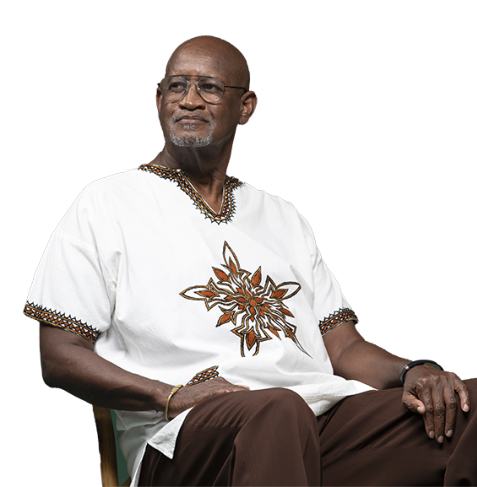
The
key
to
art
is
the
power
of
impression,
a
gift
from
God
to
many
of
us
to
inspire
people
with
beautiful
expressions
through
music,
paintings,
dance,
or
other
art
forms
to
serve
our
cultural
progress.
“Being
an
African
American
myself,
I
am
more
comfortable
presenting
my
perspective on Afro-Americana if there is such a word.”
For
the
past
two
year,
I
have
been
living
and
traveling
between
Kenya,
Tanzania,
Uganda, and Rwanda in East Africa.




About
My Favorite People of Interest
Thomas Sowell, http://www.tsowell.com/
Victor Davis Hanson https://victorhanson.com/
Jordan Peterson https://www.jordanbpeterson.com/
Tulsi Gabbard, https://www.tulsigabbard.com/podcast/
President Paul Kagame, https://www.paulkagame.com/





Alan
Dean
Shariff
invites
Patreon
supporters
to
join
him
on
an
inspiring
journey
as
he
documents
the
creation
of
a
unique
collection
of
40
paintings,
capturing
the
beauty
of
East
Africa
for
a
planned
culture
and
history
museum.
Through
his
YouTube
channel,
Alan
will
share
videos
detailing
this
project
as
well
as
his
travels across Kenya, Tanzania, Uganda, and Rwanda.
As
a
Patreon
member,
you’ll
enjoy
exclusive
behind-the-scenes
content,
sneak
peeks
of
the
artwork,
and
more.
Plus,
supporters
will
receive
a
one-time
20%
discount
on
any
of
Shariff’s
art
prints,
framed
or
unframed,
available
at
www.alanshariff.com.
Upon
joining,
a
discount
code
will
be
emailed
to
you,
which you can apply at checkout.
By
becoming
a
supporter,
you’ll
play
a
vital
role
in
making
this
museum
a
reality,
a
cultural
landmark
that
will
preserve
East
Africa’s
rich
heritage
for
generations to come.
All Rights Reserved 2023 . Alan Dean Shariff
Subscribe to our mailing list



Welcome





Preface
I
titled
this
book
Climbing
the
Stairway
to
Culture
because
the
most
significant
problem
we
face
as
a
species
is
our
tendency
to
cling
to
things,
even
when
they
hinder
our
growth.
Whether
it’s
outdated
beliefs,
harmful
relationships, unproductive environments, or detrimental habits, many people hold onto what no longer serves them, even when these things stunt their spiritual and cultural progress.
To
climb
a
stairway,
you
must
leave
one
step
behind
to
reach
the
next.
In
the
same
way,
I
believe
people
cannot
progress
religiously
or
culturally
beyond
the
point
they
are
clinging
to
if
what
they
hold
onto
is
not
aligned
with God’s will. True growth requires the willingness to let go of what holds us back and embrace the steps that lead us closer to God.
Understanding
religion
and
righteousness
does
not
require
claiming
greatness,
sinlessness,
or
prophethood.
I
do
not
present
myself
as
anything
more
than
a
repenting
sinner,
striving
to
earn
God’s
forgiveness
and
blessings
by
sharing
His
clear
message
and
warning
with
the
world.
I
firmly
believe
that
there
is
no
need
for
another
prophet
to
come,
as
the
truth
is
already
accessible
to
anyone
who
seeks
it.
The
existing
holy
books
contain
all
the
guidance necessary for those striving to live righteously today.
This
is
a
reminder
that
knowledge
and
spiritual
growth
are
within
our
reach.
Each
of
us
is
capable
of
embarking
on
this
journey
of
seeking
truth
and
righteousness,
and
it
can
lead
to
a
deeper
understanding
of
our
faith
and
a
closer connection to God. We don’t need new revelations or prophets to begin this process but only the willingness to study, learn, and align our lives with the truth already revealed.
Introduction
The
modern
world
stands
at
a
crossroads,
embroiled
in
what
many
call
the
“Culture
War.”
Unlike
past
conflicts,
this
war
is
not
fought
with
swords
or
rifles
but
with
ideologies,
values,
and
beliefs.
The
Culture
War
is
an
existential struggle for society’s soul. It is a battle between those who uphold God-ordained truths and those who seek to replace them with subjective ideologies rooted in human whim.
On
one
side,
traditionalists
strive
to
preserve
the
moral
foundations
that
have
upheld
civilizations
for
millennia.
These
values,
centered
on
faith,
family,
and
community,
are
more
than
customs;
they
are
divine
principles
that
offer stability and guidance for humanity. Traditionalists understand that culture when rooted in righteousness, serves as a vessel for transmitting wisdom, fostering human flourishing, and reflecting the Creator’s design.
Conversely,
progressives,
emboldened
by
what
they
claim
as
“modern
enlightenment,”
seek
to
dismantle
these
foundations.
Under
the
guise
of
freedom,
they
champion
relativism,
erasing
distinctions
between
right
and
wrong.
They
reduce
morality
to
a
matter
of
personal
preference,
dismissing
sacred
truths
as
archaic
constraints.
This
movement,
often
labeled
as
“woke,”
heralds
an
age
of
rebellion
against
God’s
laws,
elevating
self-
worship over submission to the Creator.
The
term
“Culture
War”
originated
to
describe
contentious
social
issues,
from
debates
on
family
values
to
disputes
over
identity
and
morality.
However,
this
term
fails
to
capture
the
gravity
of
what
is
truly
at
stake.
This
is
not
merely
a
debate
about
politics
or
personal
freedoms;
it
is
a
spiritual
conflict
over
the
very
essence
of
right
and
wrong.
Without
a
shared
moral
compass,
society
devolves
into
chaos,
with
factions
clashing
endlessly,
unable to agree even on the most fundamental truths.
It
is
tempting
to
engage
in
this
battle
on
the
terms
set
by
progressives,
debating
each
issue
in
isolation.
But
such
skirmishes,
while
necessary
at
times,
miss
the
root
cause
of
the
problem:
the
divisions
among
those
who
profess
to
believe
in
God.
These
divisions
have
caused
the
world
to
descend
again
into
the
darkness
of
moral
ignorance.
Every
attempt
to
solve
this
problem
without
God’s
light
of
moral
intelligence
and
righteousness
will
fail, leading only to greater issues. Once God’s light shines again, the darkness of moral ignorance and everything that thrives within it will naturally dissipate, for it is the nature of darkness to flee in the presence of light.
When
the
people
of
faith
are
divided,
their
collective
light,
the
moral
and
spiritual
guidance
they
are
meant
to
provide,
grows
dim.
This
leaves
society
vulnerable
to
manipulation
by
those
driven
solely
by
selfish
desires.
Without
this
unifying
light,
irrational
sentiments
and
emotions
take
precedence,
creating
an
environment
where
self-serving
individuals
can
easily
influence
and
mislead
others.
The
failure
of
believers
to
stand
united
under
God’s truth has emboldened immorality to parade itself openly, celebrated as if it were a virtue.
The
solution
to
this
moral
decay
does
not
lie
in
compromise
or
appeasement.
It
lies
in
the
unwavering
return
to
God’s
light
of
righteousness.
This
light
is
not
the
invention
of
any
individual
religion
or
sect
but
the
eternal
truth
revealed
to
humanity
from
the
beginning.
It
is
a
truth
best
exemplified
by
Abraham,
the
father
of
faith,
who
submitted
himself
wholly
to
God
without
succumbing
to
divisions
or
labels.
Abraham’s
example
provides
the
“system restore point” humanity desperately needs, a model of submission, unity, and righteousness untainted by the distortions of modern ideologies.
For
example,
I
follow
the
teachings
of
the
Quran,
making
five
daily
prayers,
observing
Ramadan,
and
adhering
to
its
guidance.
Yet,
I
do
not
identify
my
faith
as
Islam;
instead,
I
define
it
as
the
submission
of
my
will
to
God.
Describing my faith as submitting my will to God eliminates divisions between myself and other righteous people, no matter what they call themselves.
On
the
other
hand,
when
Muslims
identify
their
religion
as
Islam,
it
often
creates
separation
between
them
and
others
who
do
not
share
their
specific
belief
system.
This
includes
divisions
even
within
Islam
itself,
such
as
between Sunni, Shia, and Sufi sects, even though they all follow the same Quran. These divisions prevent them from associating with one another, whether they are righteous or not.
The
same
pattern
of
divisions
can
be
seen
among
Christians,
who
identify
by
their
denominations
even
though
they
all
read
the
same
Bible.
These
divisions
create
barriers
that
hinder
cooperation
and
mutual
respect,
even
among those who share common righteous values. This means that recognizing the Quran or Bible as the truth from God does not mean we are meant to adopt divisive labels or belong to exclusive sects.
The
path
forward
begins
with
individual
believers.
We
must
abandon
the
divisions
that
have
fractured
our
faith
communities
and
align
ourselves
with
God’s
commandments.
By
uniting
under
the
banner
of
righteousness,
we
can reignite the light of divine wisdom and dispel the darkness of moral ignorance. If the Culture War is to be won, it will not be through force or rhetoric but through the transformative power of faith and unity.
In
this
book,
I
aim
to
reintroduce
the
religion
of
Abraham
as
presented
in
the
Quran,
which
anyone
can
study
and
verify
for
themselves.
Additionally,
I
will
explore
how
the
insights
in
this
book
can
help
end
the
culture
war
and
restore
God’s
light
of
moral
intelligence
in
the
world.
My
purpose
is
not
to
convert
or
indoctrinate
but
to
encourage
individuals
to
seek
what
God
truly
wants
them
to
believe,
say,
and
do
by
learning
for
themselves.
God
desires
that
believers
think
critically
and
independently
rather
than
blindly
following
inherited
beliefs
that
cause
divisions.
The
Quran
emphasizes
that
believers
should
avoid
belonging
to
religious
sects
or
divisions,
as
both
contradict
God’s
command
for
unity
among
the
righteous.
Returning
to
Abraham’s
example,
we
can
focus
on
the
core
principles
of
faith
that
unite
all
believers,
transcending
the
labels
and
traditions
that
have
divided
us
for
so long.
Quran
42:13
The
same
religion
has
He
established
for
you
as
that
which
He
enjoined
on
Noah
which
We
have
sent
by
inspiration
to
thee
Mohammed
and
that
which
We
enjoined
on
Abraham
Moses
and
Jesus.
Namely,
ye
should
remain
steadfast
in
religion
and
make
no
divisions
therein:
to
those
who
worship
other
things
than
God,
hard
is
the
way
to
which
thou
call
them.
God
chooses
to
Himself
those
whom
He
pleases
and
guides
to
Himself
those who turn to Him.
Quran
3:19
The
Religion
before
God
is
submission
to
His
will,
and
the
people
of
the
Book
(those
who
had
the
book
before
you)
did
not
dissent
from
it
except
through
envy
of
each
other
after
knowledge
had
come
to
them.
But if any deny the Signs of God, He is swift in calling them to account.
Quran 23:53 But people have cut off their affair of unity between them into sects: each party rejoices in that which is with itself. But leave them in their confused ignorance for a time.
Quran 6:159 As for those who divide their religion and break up into sects, thou hast no part in them in the least: their affair is with God. He will, in the end, tell them the truth of all that they did.
My Book

In
Climbing
the
Stairway
to
Culture:
Righteousness,
The
Solution
to
the
Culture
War,
Alan
Dean
Shariff
delivers
a
thought-provoking
and
timely
exploration
of
the
modern
culture
war
that
threatens
to
fragment
society.
This
book
calls
for
individuals
and
communities
to
rediscover
the
foundational
principles
of
unity,
righteousness, and submission to God’s will.
Shariff
argues
that
today's
world's
divisive
labels
and
sectarian
ideologies
have
obscured
the
true
path
to
spiritual
and
cultural
growth.
Drawing
on
the
teachings
of
the
Quran
and
the
timeless
example
of
Abraham,
the
father
of
faith,
this
book
presents
a
compelling
solution:
a
return
to
the
essence
of
faith,
submission
to
God
without
divisions
or
religious
exclusivity.
Although
Shariff
draws
heavily
from
the
teachings
of
the
Quran,
he
emphasizes
that
recognizing
the
truth
within
its
guidance
does
not
mean
we
are
meant
to
identify
as
Muslims
or
belong
to
any
specific
religious
group.
He
highlights
that
the
Quran
explicitly
forbids
believers
from
aligning
with
divisions
or
sects,
advocating
instead
for
unity
through
submission to God alone.
The
book
challenges
readers
to
climb
the
stairway
of
culture
by
shedding
outdated
beliefs,
harmful
relationships,
and
practices
that
hinder
spiritual
progress.
Like
stepping
to
higher
ground,
each
step
demands leaving behind what no longer serves the individual or humanity’s collective growth.
Key Themes
•
The
Culture
War:
Shariff
analyzes
the
ideological
battles
over
morality,
truth,
and
values,
highlighting
the importance of divine guidance in navigating this conflict.
•
Abraham’s
Example:
The
author
calls
for
unity
based
on
Abraham’s
faith,
justice,
submission,
and
righteousness, transcending divisions caused by labels and sects.
•
Personal
Responsibility:
Emphasizing
self-reflection
and
critical
thinking,
the
book
challenges
readers
to
move beyond inherited beliefs and embrace a more profound, personal connection to God.
•
Unity
Among
Believers:
It
advocates
for
cooperation
and
understanding
among
those
who
seek
righteousness, regardless of their religious affiliations.
Shariff’s
work
is
a
powerful
reminder
that
culture,
rooted
in
divine
wisdom,
serves
as
a
vessel
for
human
flourishing
and
spiritual
enlightenment.
This
book
is
a
critique
and
a
roadmap
for
those
seeking
to
heal
society's fractures and restore God’s light in the world.
Whether
you
are
a
believer
searching
for
spiritual
clarity
or
someone
interested
in
the
intersection
of
culture,
religion,
and
morality,
Climbing
the
Stairway
to
Culture
offers
profound
insights
and
practical
solutions to contemporary challenges.
Take
the
first
step
toward
cultural
renewal
and
unity
today.
Climb
the
stairway
to
culture
and
righteousness!
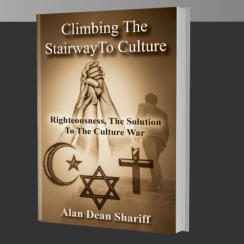



My Favorite People of Interest
Thomas Sowell, http://www.tsowell.com/
Victor Davis Hanson https://victorhanson.com/
Jordan Peterson https://www.jordanbpeterson.com/
Tulsi Gabbard, https://www.tulsigabbard.com/podcast/
President Paul Kagame, https://www.paulkagame.com/





Alan
Dean
Shariff
invites
Patreon
supporters
to
join
him
on
an
inspiring
journey
as
he
documents
the
creation
of
a
unique
collection
of
40
paintings,
capturing
the
beauty
of
East
Africa
for
a
planned
culture
and
history
museum.
Through
his
YouTube
channel,
Alan
will
share
videos
detailing
this
project
as
well
as
his
travels across Kenya, Tanzania, Uganda, and Rwanda.
As
a
Patreon
member,
you’ll
enjoy
exclusive
behind-the-scenes
content,
sneak
peeks
of
the
artwork,
and
more.
Plus,
supporters
will
receive
a
one-time
20%
discount
on
any
of
Shariff’s
art
prints,
framed
or
unframed,
available
at
www.alanshariff.com.
Upon
joining,
a
discount
code
will
be
emailed
to
you,
which you can apply at checkout.
By
becoming
a
supporter,
you’ll
play
a
vital
role
in
making
this
museum
a
reality,
a
cultural
landmark
that
will
preserve
East
Africa’s
rich
heritage
for
generations to come.
All Rights Reserved 2023 . Alan Dean Shariff
Subscribe to our mailing list




Welcome


Alan Dean, The Soul Singer
Easy
Getting Ready
Going out of my head
Hero
I can’t help falling in love with you
I feel good
I heard it through the grapevine
I who have nothing
Inseparable
It’s hard to say goodbye
Just Once
Lean on me
Let’s stay together
Love is a hurting thing
Midnight-hour















Hear Beautiful Enchanting Songs
of Love and Memories
Show Kigali, 8, 5, 2023
Show Kigali, 8, 12, 2023
Medley, Mall Show
Beauty is only skin deep
Still
Georgia on my mind






My love
My way
New York New York
One in a million
Rainy night in Georgia
Sitting on the dock of the bay
Sonny
Soul-man
Stand by me
Still
Three little birds
Three times a lady
Unchained melody
Under the boardwalk
You will never find another love like mind






















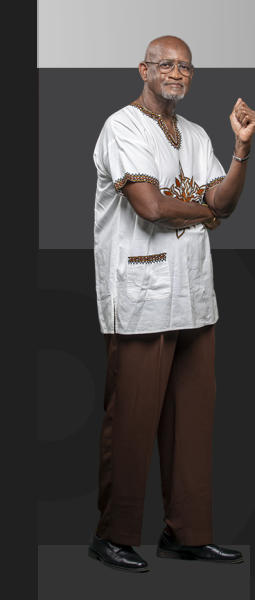











My Songs
My Favorite People of Interest
Thomas Sowell, http://www.tsowell.com/
Victor Davis Hanson https://victorhanson.com/
Jordan Peterson https://www.jordanbpeterson.com/
Tulsi Gabbard, https://www.tulsigabbard.com/podcast/
President Paul Kagame, https://www.paulkagame.com/





Alan
Dean
Shariff
invites
Patreon
supporters
to
join
him
on
an
inspiring
journey
as
he
documents
the
creation
of
a
unique
collection
of
40
paintings,
capturing
the
beauty
of
East
Africa
for
a
planned
culture
and
history
museum.
Through
his
YouTube
channel,
Alan
will
share
videos
detailing
this
project
as
well
as
his
travels across Kenya, Tanzania, Uganda, and Rwanda.
As
a
Patreon
member,
you’ll
enjoy
exclusive
behind-the-scenes
content,
sneak
peeks
of
the
artwork,
and
more.
Plus,
supporters
will
receive
a
one-time
20%
discount
on
any
of
Shariff’s
art
prints,
framed
or
unframed,
available
at
www.alanshariff.com.
Upon
joining,
a
discount
code
will
be
emailed
to
you,
which you can apply at checkout.
By
becoming
a
supporter,
you’ll
play
a
vital
role
in
making
this
museum
a
reality,
a
cultural
landmark
that
will
preserve
East
Africa’s
rich
heritage
for
generations to come.
All Rights Reserved 2023 . Alan Dean Shariff
Subscribe to our mailing list










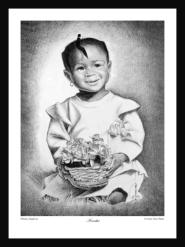

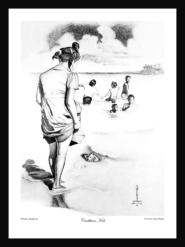


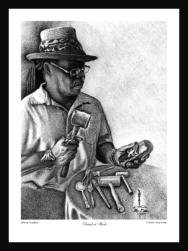

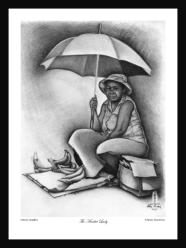
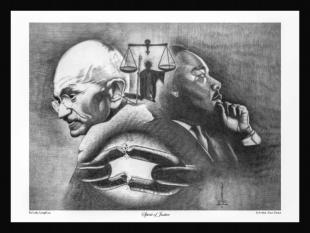


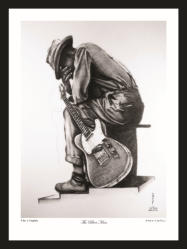


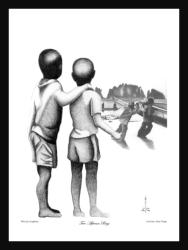



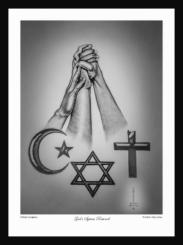

Sizes Retail
8x10 $44.00
12x16 $69.00
16x20 $91.00
18x24 $98.00
24x36 $161.00
Art Gallery
Framed Art Prints

My Favorite People of Interest
Thomas Sowell, http://www.tsowell.com/
Victor Davis Hanson https://victorhanson.com/
Jordan Peterson https://www.jordanbpeterson.com/
Tulsi Gabbard, https://www.tulsigabbard.com/podcast/
President Paul Kagame, https://www.paulkagame.com/





Alan
Dean
Shariff
invites
Patreon
supporters
to
join
him
on
an
inspiring
journey
as
he
documents
the
creation
of
a
unique
collection
of
40
paintings,
capturing
the
beauty
of
East
Africa
for
a
planned
culture
and
history
museum.
Through
his
YouTube
channel,
Alan
will
share
videos
detailing
this
project
as
well
as
his
travels across Kenya, Tanzania, Uganda, and Rwanda.
As
a
Patreon
member,
you’ll
enjoy
exclusive
behind-the-scenes
content,
sneak
peeks
of
the
artwork,
and
more.
Plus,
supporters
will
receive
a
one-time
20%
discount
on
any
of
Shariff’s
art
prints,
framed
or
unframed,
available
at
www.alanshariff.com.
Upon
joining,
a
discount
code
will
be
emailed
to
you,
which you can apply at checkout.
By
becoming
a
supporter,
you’ll
play
a
vital
role
in
making
this
museum
a
reality,
a
cultural
landmark
that
will
preserve
East
Africa’s
rich
heritage
for
generations to come.
All Rights Reserved 2023 . Alan Dean Shariff
Subscribe to our mailing list






Art Gallery

Unframed Art Prints



















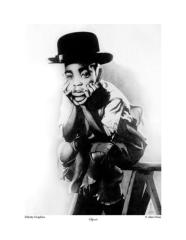




Sizes Prices
5x7 $13.00
8x10 $16.00
11x14 $22.00
12x16 $25.00
16x20 $27.00
18x24 $29.00
20x30 $35.00
My Favorite People of Interest
Thomas Sowell, http://www.tsowell.com/
Victor Davis Hanson https://victorhanson.com/
Jordan Peterson https://www.jordanbpeterson.com/
Tulsi Gabbard, https://www.tulsigabbard.com/podcast/
President Paul Kagame, https://www.paulkagame.com/





Alan
Dean
Shariff
invites
Patreon
supporters
to
join
him
on
an
inspiring
journey
as
he
documents
the
creation
of
a
unique
collection
of
40
paintings,
capturing
the
beauty
of
East
Africa
for
a
planned
culture
and
history
museum.
Through
his
YouTube
channel,
Alan
will
share
videos
detailing
this
project
as
well
as
his
travels across Kenya, Tanzania, Uganda, and Rwanda.
As
a
Patreon
member,
you’ll
enjoy
exclusive
behind-the-scenes
content,
sneak
peeks
of
the
artwork,
and
more.
Plus,
supporters
will
receive
a
one-time
20%
discount
on
any
of
Shariff’s
art
prints,
framed
or
unframed,
available
at
www.alanshariff.com.
Upon
joining,
a
discount
code
will
be
emailed
to
you,
which you can apply at checkout.
By
becoming
a
supporter,
you’ll
play
a
vital
role
in
making
this
museum
a
reality,
a
cultural
landmark
that
will
preserve
East
Africa’s
rich
heritage
for
generations to come.
All Rights Reserved 2023 . Alan Dean Shariff
Subscribe to our mailing list





Welcome



The Museum: A Cultural Renaissance for East Africa
Inspired
by
Rwanda’s
remarkable
recovery
after
the
1994
genocide,
where
800,000
people
were
tragically
murdered
due
to
tribal
divisions,
I
felt
called
to
visit
East
Africa.
Today,
Rwanda’s
capital,
Kigali,
stands
as
one
of
the
cleanest
cities
in
the
world,
setting
a
model
for
the
entire
continent.
Additionally,
several
East
African
nations,
including
Rwanda,
have
united
under
the
East
African
Community
and
are
working
towards
forming
a
single
nation,
the
East
African
Federation.
As
an
African
American
artist
devoted
to
the
growth
and
development
of
culture,
I
find
this
unity
inspiring,
especially
in
a
world
where
many
societies,
including
the
United
States,
appear
to
collapse
into
moral
and
social
chaos.
Wanting
to
contribute
to
this
historic
East
African
movement,
I
have
envisioned
a
Cultural
and
Slave
History
Museum
based
on
the
principles
in
my
book,
Climbing
the
Stairway
to
Culture.
This
museum
would
foster
unity,
growth,
and
understanding
across
the
region,
honoring
figures
like
Paul
Robeson,
who
I
believe
would
not
have
missed
an
opportunity
to
support
such
a
powerful initiative.
In
my
book,
Climbing
the
Stairway
to
Culture,
I
reintroduce
the
religion
of
Abraham
as
a
foundation
for
unity
among
all
God-fearing
people,
seeking
to
bridge
divisions
among
believers.
The
book
contrasts
pagan
customs
and
superstitions
with
a
culture
grounded
in
scientific
understanding,
providing
a
necessary
perspective
to
free
East
Africa
from
outdated
traditions
and
guide
its
people
toward
the
growth
and
development
that
the
East
African
Community
envisions.
No
matter
how
ambitious
or
noble
the
goal
of
an
East
African
Federation
may
be,
I
believe
the
greatest
challenge
to
its
success
will
be
overcoming
deeply
ingrained
customs
and
beliefs
that
hinder
progress.
In
my
view,
it
is
the
persistent
belief
in
magic
and
superstition,
not
colonialism,
that
has
held
back
many
African
communities.
While
European
colonization
introduced
specific
societal
structures,
it
did
not
instill
the
belief
in
magic
and
superstitions that persist today.
The
museum
would
be
organized
into
three
departments.
The
first
department,
Religious
Study
and
Unity
would
reintroduce
the
religion
of
Abraham,
emphasizing
the
worship
of
one
God
and
the
practice
of
righteousness
and
justice
for
all
people.
In
today’s
world,
religious
institutions
often
foster
division
by
claiming
exclusive
access
to
truth.
However,
this
department would promote a universal faith in God that transcends labels, fostering unity among all believers.
The
second
department,
Science
versus
Superstition,
would
challenge
longstanding
beliefs
in
magic
and
superstition,
particularly
in
African
communities
where
such
practices
have
been
passed
down
for
generations.
Through
education,
the
museum
would
demonstrate
that
genuine
progress
is
rooted
in
scientific
understanding
rather
than
superstition.
Visitors
would
learn
that
actual
cultural
growth
aligns
with
God’s
design
for
the
world,
which
operates
by
natural
laws
that
humanity
can
understand
and
harness.
By
exploring
these
natural
laws
and
humanity’s
growing
knowledge,
the
museum
would
show
that
societies
relying
on
science
build
on
past
discoveries
and
progress
with
each
generation.
In
contrast,
societies
that
depend
on
magic
lack
this
accumulative
progress,
as
magic
cannot
offer
reproducible,
reliable
outcomes.
This
department
would
thus
lay
a
foundation
for
growth
in
East
Africa,
potentially establishing the region as a cultural and intellectual leader.
The
third
department,
A
True
History
of
Slavery,
would
draw
on
Thomas
Sowell’s
The
Real
History
of
Slavery
to
explore
the
complex
history
of
the
African
slave
trade.
While
recognizing
the
atrocities
of
slavery,
the
museum
would
also
shed
light
on
lesser-known
aspects,
such
as
the
fact
that
slavery
existed
within
Africa
and
the
Arab
world
long
before
European
involvement.
Furthermore,
it
was
European
nations
that
ultimately
abolished
slavery,
a
point
that
is
often
overlooked.
This
department
would
offer
a
balanced
perspective,
acknowledging painful histories while celebrating progress toward freedom and human rights.
By
addressing
historical
injustices
and
outdated
cultural
practices,
this
museum
would
give
young
East
Africans
a
fresh
understanding
that
honors
tradition
and
embraces
progress.
For
example,
the
Quran
emphasizes
that
the
world
operates
by
natural
laws
that
humanity
can
understand
and
use,
aligning
with
the
path
of
human
progress,
which
builds
upon
scientific
discoveries
to
advance
society.
Like
a
university
system,
this
foundation
of
scientific
understanding
allows
each
generation
to
begin
where
the
last
one
left
off.
Through
this
museum,
future
generations
in
East
Africa
will
learn
about
a
culture
of
growth
and
unity
rooted
in
reason,
science,
and
faith
in
one
Creator.
This
vision
celebrates
East
Africa’s
unity
and
equips
it
to lead by example, fostering a resilient and scientifically grounded culture that challenges superstitions and outdated beliefs.
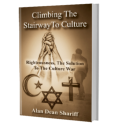




Alan Dean,
The Soul Singer
Hear Beautiful
Songs of
Love and
Memories
Patreon
supporters
will
be
part
of
Alan’s
journey
as
he
documents
the
creation
of
this
collection
of
paintings
in
the
video
for
his
YouTube
channel
and
his
travels
across
Kenya,
Tanzania,
Uganda,
and
Rwanda.
Members
will
enjoy
exclusive
behind-the-scenes
content,
sneak
peeks,
and
more.
Also
receive
a
20
%
discount
off
any
of
my
art
prints,
framed
or
unframed,
in
my
gallery
at
www.alanshariff.com.
Upon
subscription,
I
will
send
you
a
one-time
use
discount
code
to
add
to
your
order
at
checkout.Your
support
brings
this
museum closer to reality, creating a cultural landmark for generations to come.
Be a Part of History. Help Us Build a Legacy.
The Museum: A Cultural Renaissance for East Africa
Welcome
to
a
transformative
vision
for
East
Africa!
Inspired
by
Rwanda’s
incredible
recovery
after
the
1994
genocide,
where
800,000
people
tragically
lost
their
lives
due
to
tribal
divisions,
I
felt
a
deep
calling
to
visit
East
Africa.
Today,
Kigali,
Rwanda’s
capital,
is
one
of
the
world’s
cleanest
cities
and
a
beacon
of
hope
for
the
continent.
Rwanda
and
other
East
African
nations
are
part
of
the
East
African
Community
and
are
working
toward
unification
as
a
single
nation,
the
East
African
Federation.
As
an
African
American
artist
devoted
to
cultural
growth,
I
find
this
unity
inspiring
in
a
world
increasingly
divided.
Now,
I’m
working
to
contribute
to
this
historic
movement
by
developing
The
Museum:
A
Cultural
Renaissance for East Africa, a Cultural and Slave History Museum rooted in the principles of my book, Climbing the Stairway to Culture.
Why This Museum?
This
museum
will
be
a
hub
for
unity,
growth,
and
understanding
across
East
Africa,
honoring
iconic
figures
like
Paul
Robeson,
who
I
believe
would
support
this
initiative
wholeheartedly.
Climbing
the
Stairway
to
Culture
reintroduces
Abraham’s
universal
faith,
advocating
for
unity
among
all
who
revere
God
and
challenging
outdated
beliefs
and
superstitions. This museum will address the region's deep cultural traditions that hinder progress, fostering a culture grounded in scientific understanding and growth.
Museum Vision and Departments
The museum will be divided into three essential departments, each addressing a unique aspect of cultural development and unity:
1.
Religious
Study
and
Unity:
This
department
aims
to
foster
unity
by
revisiting
Abraham's
faith,
promoting
the
worship
of
one
God,
and
upholding
justice
and
righteousness.
It
seeks to transcend divisive labels and promote a shared faith that unites all believers.
2.
Science
vs.
Superstition:
Here,
we’ll
confront
outdated
beliefs
in
magic
and
superstition,
especially
those
passed
down
within
African
communities.
Through
scientific
education,
this
department
will
show
that
true
progress
comes
from
understanding
natural
laws,
not
superstition.
This
approach
will
help
lay
a
foundation
for
East
Africa
to
emerge
as
a
cultural and intellectual leader, empowering communities with practical knowledge.
3.
A
True
History
of
Slavery:
Drawing
on
Thomas
Sowell’s
The
Real
History
of
Slavery,
this
department
will
present
a
balanced
perspective
on
the
African
slave
trade.
It
will
acknowledge
slavery’s
painful
history
while
highlighting
essential
truths,
such
as
the
fact
that
slavery
existed
in
Africa
long
before
European
involvement
and
that
it
was
ultimately
European nations that abolished the practice. This perspective is essential for understanding both the hardships endured and the progress achieved.
Through
these
three
pillars,
the
museum
will
help
young
East
Africans
gain
a
fresh
understanding
that
celebrates
tradition
while
embracing
progress.
The
Quran
reminds
us
that
the
world
operates
by
natural
laws
we
can
understand,
allowing
each
generation
to
build
on
the
discoveries
of
the
past.
This
museum
will
embody
that
philosophy,
giving
future
generations
in East Africa a foundation rooted in reason, science, and faith.
Join the Vision on Patreon
Subscribe to our mailing list


My Favorite People of Interest
Thomas Sowell, http://www.tsowell.com/
Victor Davis Hanson https://victorhanson.com/
Jordan Peterson https://www.jordanbpeterson.com/
Tulsi Gabbard, https://www.tulsigabbard.com/podcast/
President Paul Kagame, https://www.paulkagame.com/





Alan
Dean
Shariff
invites
Patreon
supporters
to
join
him
on
an
inspiring
journey
as
he
documents
the
creation
of
a
unique
collection
of
40
paintings,
capturing
the
beauty
of
East
Africa
for
a
planned
culture
and
history
museum.
Through
his
YouTube
channel,
Alan
will
share
videos
detailing
this
project
as
well
as
his
travels across Kenya, Tanzania, Uganda, and Rwanda.
As
a
Patreon
member,
you’ll
enjoy
exclusive
behind-the-scenes
content,
sneak
peeks
of
the
artwork,
and
more.
Plus,
supporters
will
receive
a
one-time
20%
discount
on
any
of
Shariff’s
art
prints,
framed
or
unframed,
available
at
www.alanshariff.com.
Upon
joining,
a
discount
code
will
be
emailed
to
you,
which you can apply at checkout.
By
becoming
a
supporter,
you’ll
play
a
vital
role
in
making
this
museum
a
reality,
a
cultural
landmark
that
will
preserve
East
Africa’s
rich
heritage
for
generations to come.
All Rights Reserved 2023 . Alan Dean Shariff
Subscribe to our mailing list



Welcome



Museum Mission: A Beacon of Unity, Progress, and Cultural Heritage for East Africa
The Full Museum Mission Proposal
Museum Mission: A Beacon of Unity, Progress, and Cultural Heritage for East Africa
The
Museum
of
Cultural
Renaissance
for
East
Africa
is
dedicated
to
fostering
unity,
enlightenment,
and
cultural
evolution
by
embracing
historical
truths
and
progressive
values.
Inspired
by
the
resilience
and
unity
of
nations
like
Rwanda,
which
transformed
from
devastation
to
a
model
of
cleanliness
and
progress,
the
museum
celebrates
East
Africa’s
journey
toward collective growth and cultural pride.
The
museum’s
mission
is
to
serve
as
a
cornerstone
for
a
unified
East
African
identity
rooted
in
scientific
understanding,
cultural
appreciation,
and
shared
spiritual
values.
It
aims
to
inspire
future
generations
to
overcome
outdated
beliefs
and
foster
a
society
where
progress
aligns
with
divine
principles,
honoring
one
Creator
while
promoting
unity
and
righteousness
across all faiths.
Cultural and Educational Significance
This museum will be an educational hub, offering three core departments:
1.
Religious
Study
and
Unity:
Reintroducing
Abraham's
teachings,
this
department
promotes
a
shared
faith
that
transcends
religious
labels,
emphasizing
the
worship
of
one
God
and fostering unity among all believers.
2.
Science
versus
Superstition:
This
department
educates
on
the
importance
of
scientific
progress
through
exhibits
contrasting
scientific
knowledge
with
longstanding
superstitions, demonstrating that growth and innovation are part of God’s design and essential to East Africa’s future.
3.
A
True
History
of
Slavery:
Offering
a
balanced
perspective
on
the
African
slave
trade,
this
department
will
confront
historical
truths
while
recognizing
the
progress
toward
human rights, inspiring a deeper understanding and appreciation for the resilience and freedom of African people.
Connection to East African Heritage
The
museum
reflects
East
Africa’s
commitment
to
a
united
future
by
addressing
the
challenges
of
cultural
and
spiritual
growth.
It
draws
inspiration
from
the
East
African
Community’s
vision
of
forming
a
federation,
aligning
its
mission
with
the
shared
aspirations
of
unity
and
progress.
By
examining
history,
faith,
and
scientific
advancement,
the
museum
will
provide
East Africans with a foundation for an empowered future, honoring tradition while embracing knowledge that uplifts communities and prepares the region to lead by example.
To Promote and finance this museum
To
Promote
and
finance
this
museum,
the
artist
Alan
Dean
Shariff
wants
to
create
a
collection
of
40
oil
paintings,
with
limited-edition
prints
of
each
painting
depicting
people,
culture,
natural
landscapes,
cultural
landmarks,
and
historical
sites
in
East
Africa.
Alan
Dean
Shariff’s
artistic
journey
reflects
a
profound
commitment
to
cultural
growth
and
unity.
As
an
African
American
artist,
he
views
himself
not
merely
as
a
creator
but
as
a
steward
of
culture,
dedicated
to
advancing
humanity’s
ethical
and
spiritual
understanding
through
art.
His
connection
to
East
Africa
runs
deep,
born
from
two
years
spent
absorbing
the
landscapes,
heritage,
and
spirit
of
Kenya,
Tanzania,
Uganda,
and
Rwanda.
In
each
piece,
Shariff
will
strive
to capture East Africa’s essence with integrity, portraying its people, landscapes, and traditions in a way that honors their beauty and complexity.
Shariff
sees
culture
as
a
divine
gift
that
shapes
human
nature,
much
like
clay
molded
by
the
potter’s
hands.
This
vision
influences
his
art,
guiding
him
to
create
works
that
resonate
with
authenticity
and
purpose.
He
believes
that
the
artistic
gifts
bestowed
upon
humanity
through
music,
painting,
dance,
and
beyond
carry
the
power
to
inspire
ethical
growth,
transcend
cultural
barriers,
and
foster
unity.
By
portraying
East
Africa’s
true
spirit,
Shariff
will
invite
viewers
into
a
shared
experience,
encouraging
them
to
recognize
the
common
threads
of
humanity that bind us all. His work is not just an artistic endeavor but a call to unity and understanding, reaching beyond divisions and uplifting the soul.
This fundraising initiative is an opportunity to support a cultural landmark that will educate, inspire, and foster unity across East Africa and beyond.
Themes of the Collection:
o
People and Culture: Ten paintings showcasing daily life, traditional attire, and local customs to honor East African communities.
o
Natural Landscapes: Ten paintings celebrating the region’s diverse and breathtaking environments, from savannas and lakes to mountains and forests.
o
Cultural Landmarks: Ten paintings Illustrating notable sites with historical and spiritual significance for East Africans.
o
Historical Sites: Ten paintings offering artistic glimpses into locations with deep historical relevance, tying past events to the present cultural identity.
Limited-Edition Details and Appeal:
"Owning
a
piece
from
this
collection
is
not
just
acquiring
art;
it's
owning
a
piece
of
East
African
culture
and
history,
captured
with
skill
and
reverence.
Each
print
is
crafted
to
be
a
rare
collectible,
part
of
a
strictly
limited
edition
that
ensures
exclusivity
and
rarity.
Due
to
its
scarcity,
craftsmanship,
and
cultural
significance,
every
print
holds
intrinsic
value
for
art
collectors and investors alike.
As
demand
grows
and
the
limited
number
of
prints
remains
fixed,
each
becomes
a
cherished
possession
and
an
asset
that
stands
the
test
of
time,
with
the
potential
to
appreciate
in
value.
Every
print
will
be
uniquely
numbered
and
signed
by
the
artist,
making
each
piece
a
treasure
within
the
collection.
Those
who
secure
an
early
number
can
expect
even
greater
rarity
and
investment potential.
This
collection
represents
more
than
beauty;
it's
a
bridge
to
East
Africa's
heritage
and
a
lasting
testament
to
its
cultural
richness.
Investing
in
one
of
these
prints
means
you're
not
just
acquiring art; you’re securing a valuable asset and supporting a museum project that preserves and celebrates the region’s rich legacy."
Each print will have a high-quality reproduction, carefully crafted to capture the original artwork’s depth and vibrancy.
Price estimates, for example, that can be raised or lowered
Limited Editions Overview for Fundraising Collection
1.
Tier 1
o
Paintings: 10 paintings
o
Limited Edition Copies per Painting: 100 copies
o
Price per Copy: $5,000
o
Total Prints for Tier: 10 paintings x 100 copies = 1,000 prints
o
Revenue from Tier 1: 1,000 prints x $5,000 = $5,000,000
2.
Tier 2
o
Paintings: 10 paintings
o
Limited Edition Copies per Painting: 500 copies
o
Price per Copy: $2,000
o
Total Prints for Tier: 10 paintings x 500 copies = 5,000 prints
o
Revenue from Tier 2: 5,000 prints x $2,000 = $10,000,000
3.
Tier 3
o
Paintings: 10 paintings
o
Limited Edition Copies per Painting: 1,000 copies
o
Price per Copy: $1,000
o
Total Prints for Tier: 10 paintings x 1,000 copies = 10,000 prints
o
Revenue from Tier 3: 10,000 prints x $1,000 = $10,000,000
4.
Tier 4
o
Paintings: 10 paintings
o
Limited Edition Copies per Painting: 5,000 copies
o
Price per Copy: $500
o
Total Prints for Tier: 10 paintings x 5,000 copies = 50,000 prints
o
Revenue from Tier 4: 50,000 prints x $500 = $25,000,000
________________________________________
Total Revenue Target from All Tiers: $5,000,000 + $10,000,000 + $10,000,000 + $25,000,000 = $50,000,000





Alan Dean,
The Soul Singer
Hear Beautiful
Songs of
Love and
Memories

My Favorite People of Interest
Thomas Sowell, http://www.tsowell.com/
Victor Davis Hanson https://victorhanson.com/
Jordan Peterson https://www.jordanbpeterson.com/
Tulsi Gabbard, https://www.tulsigabbard.com/podcast/
President Paul Kagame, https://www.paulkagame.com/





All Rights Reserved 2023 . Alan Dean Shariff
Subscribe to our mailing list
Alan
Dean
Shariff
invites
Patreon
supporters
to
join
him
on
an
inspiring
journey
as
he
documents
the
creation
of
a
unique
collection
of
40
paintings,
capturing
the
beauty
of
East
Africa
for
a
planned
culture
and
history
museum.
Through
his
YouTube
channel,
Alan
will
share
videos
detailing
this
project
as
well
as
his
travels across Kenya, Tanzania, Uganda, and Rwanda.
As
a
Patreon
member,
you’ll
enjoy
exclusive
behind-the-scenes
content,
sneak
peeks
of
the
artwork,
and
more.
Plus,
supporters
will
receive
a
one-time
20%
discount
on
any
of
Shariff’s
art
prints,
framed
or
unframed,
available
at
www.alanshariff.com.
Upon
joining,
a
discount
code
will
be
emailed
to
you,
which you can apply at checkout.
By
becoming
a
supporter,
you’ll
play
a
vital
role
in
making
this
museum
a
reality,
a
cultural
landmark
that
will
preserve
East
Africa’s
rich
heritage
for
generations to come.



Welcome



Museum Mission: A Beacon of Unity, Progress, and Cultural Heritage for East Africa
Transparency in Fund Allocation:
The
final
location
for
the
museum
has
not
yet
been
determined;
the
artist
intends
to
let
public
opinion
guide
this
decision
before
the
art
collection
is
released
for
sale.
Once
a
location
is
chosen,
the
artist,
Alan
Dean
Shariff,
will
establish
a
business
entity
with
a
responsible
management
team
to
ensure
all
funds
are
transparently
managed
and
exclusively
allocated
for
the
museum's
construction
and
maintenance.
To
create
this
art
collection,
which
will
serve
as
the
museum's
primary
funding
source,
Alan
Dean
Shariff
is
currently
seeking
donations or investors who recognize the project’s significance and wish to support this historic endeavor.
Promotion and Marketing Strategy for Limited Edition Prints:
1.
International Art Shows and Exhibitions
o
Objective: To engage the public and generate interest in the museum project by internationally showcasing Shariff’s East African-themed art collection.
o
Initial Focus: Begin with traveling art shows across the East African Community countries.
o
Public Relations: The country selected for the museum location can collaborate with embassies worldwide to promote the shows, enhancing visibility and credibility.
o
Expansion: Art shows will expand to major cities in the United States, the UK, Canada, and Australia, allowing broader international reach.
2.
Partnerships with International Galleries
o
Objective: To leverage established gallery networks to reach art enthusiasts and collectors.
o
Strategy: Partner with galleries in critical regions worldwide, enabling physical access to prints and further promoting the museum’s mission and cultural significance.
3.
Online Platform Sales
o
Objective: To increase accessibility to limited edition prints for a global audience.
o
Platforms:
Collaborate
with
reputable
online
art
platforms
and
marketplaces
to
facilitate
sales
to
collectors
worldwide,
ensuring
the
project
reaches
as
many
supporters
as
possible.
Original oil painting collection production time
Alan
Dean
Shariff’s
museum
project
involves
creating
a
collection
of
40
original
oil
paintings,
ranging
from
20x30
inches
to
4x6
feet,
within
an
estimated
two
to
three
years.
This
ambitious
timeline
includes
the
paintings'
production
and
a
series
of
videos
documenting
both
the
creative
process
and
the
artist’s
travels
across
East
Africa.
These
videos
will
showcase
Shariff’s
exploration
of
the
people
and
places
that
inspire
his
work
and
will
be
regularly
aired
on
his
YouTube
channel
to
engage
and
build
an
audience
for
the
Museum
project.
The videos will cover various themes:
1.
The Artist’s Studio Work – Shariff’s creative process and insights into each painting.
2.
East African Culture – Highlights East African communities' cultural aspects and traditions.
3.
Community Interactions – Shariff’s interactions with local people and the stories behind each subject.
4.
Insights from Shariff’s Book – Commentary and ideas from his book, Climbing the Stairway to Culture.
Shariff
plans
to
release
a
new
video
weekly
at
a
set
time
to
provide
consistent
engagement
and
create
anticipation
among
followers.
Additionally,
Patreon
supporters
will
enjoy
exclusive behind-the-scenes content and sneak peeks at works in progress, offering a more intimate view into Shariff’s journey and artistic process.
The
video
series
supports
promoting
the
Museum
project
and
limited-edition
prints
and
strengthens
the
connection
with
an
international
audience
interested
in
East
African
culture,
art, and Shariff's overarching message of unity and cultural growth.
Join Us in Honoring and Building East Africa’s Legacy
This
fundraising
project
is
more
than
an
art
collection;
it’s
a
movement
that
pays
homage
to
East
Africa’s
rich
history,
celebrates
its
vibrant
present,
and
fosters
a
future
rooted
in
cultural
unity
and
growth.
Each
limited-edition
print
sold
represents
not
only
a
piece
of
timeless
art
but
also
a
commitment
to
preserving
and
promoting
the
diverse
heritage
of
East
Africa
for
generations
to
come.
Your
support
in
acquiring
a
print
makes
you
part
of
this
mission,
contributing
to
creating
a
landmark
museum
that
will
serve
as
a
beacon
of
cultural
pride, education, and inspiration.
Why Become Part of This Mission?
As
a
supporter,
you’re
not
just
purchasing
art;
you’re
investing
in
a
vision
that
connects
people,
strengthens
cultural
appreciation,
and
leaves
a
lasting
impact
on
the
world.
Your
participation celebrates the beauty, resilience, and unity of East Africa, helping create a foundation for continued cultural exchange and understanding across borders.
We Invite You to Make History with Us
By
joining
this
project,
you
become
part
of
a
legacy.
Together,
let’s
create
a
museum
that
is
a
tribute
to
East
Africa’s
unique
identity
and
universal
values.
Be
one
of
the
supporters
who
will
look
back
proudly,
knowing
you
contributed
to
a
vision
that
respects
the
past,
enriches
the
present,
and
shapes
a
harmonious,
culturally
rich
future.
Let’s
make
this
vision
a
reality: one masterpiece, one story, one step at a time.





Alan Dean,
The Soul Singer
Hear Beautiful
Songs of
Love and
Memories

My Favorite People of Interest
Thomas Sowell, http://www.tsowell.com/
Victor Davis Hanson https://victorhanson.com/
Jordan Peterson https://www.jordanbpeterson.com/
Tulsi Gabbard, https://www.tulsigabbard.com/podcast/
President Paul Kagame, https://www.paulkagame.com/





Alan
Dean
Shariff
invites
Patreon
supporters
to
join
him
on
an
inspiring
journey
as
he
documents
the
creation
of
a
unique
collection
of
40
paintings,
capturing
the
beauty
of
East
Africa
for
a
planned
culture
and
history
museum.
Through
his
YouTube
channel,
Alan
will
share
videos
detailing
this
project
as
well
as
his
travels across Kenya, Tanzania, Uganda, and Rwanda.
As
a
Patreon
member,
you’ll
enjoy
exclusive
behind-the-scenes
content,
sneak
peeks
of
the
artwork,
and
more.
Plus,
supporters
will
receive
a
one-time
20%
discount
on
any
of
Shariff’s
art
prints,
framed
or
unframed,
available
at
www.alanshariff.com.
Upon
joining,
a
discount
code
will
be
emailed
to
you,
which you can apply at checkout.
By
becoming
a
supporter,
you’ll
play
a
vital
role
in
making
this
museum
a
reality,
a
cultural
landmark
that
will
preserve
East
Africa’s
rich
heritage
for
generations to come.
All Rights Reserved 2023 . Alan Dean Shariff
Subscribe to our mailing list



Welcome






My Favorite People of Interest
Thomas Sowell, http://www.tsowell.com/
Victor Davis Hanson https://victorhanson.com/
Jordan Peterson https://www.jordanbpeterson.com/
Tulsi Gabbard, https://www.tulsigabbard.com/podcast/
President Paul Kagame, https://www.paulkagame.com/





Alan
Dean
Shariff
invites
Patreon
supporters
to
join
him
on
an
inspiring
journey
as
he
documents
the
creation
of
a
unique
collection
of
40
paintings,
capturing
the
beauty
of
East
Africa
for
a
planned
culture
and
history
museum.
Through
his
YouTube
channel,
Alan
will
share
videos
detailing
this
project
as
well
as
his
travels across Kenya, Tanzania, Uganda, and Rwanda.
As
a
Patreon
member,
you’ll
enjoy
exclusive
behind-the-scenes
content,
sneak
peeks
of
the
artwork,
and
more.
Plus,
supporters
will
receive
a
one-time
20%
discount
on
any
of
Shariff’s
art
prints,
framed
or
unframed,
available
at
www.alanshariff.com.
Upon
joining,
a
discount
code
will
be
emailed
to
you,
which you can apply at checkout.
By
becoming
a
supporter,
you’ll
play
a
vital
role
in
making
this
museum
a
reality,
a
cultural
landmark
that
will
preserve
East
Africa’s
rich
heritage
for
generations to come.
All Rights Reserved 2023 . Alan Dean Shariff
Subscribe to our mailing list



























































































































































































































































































































